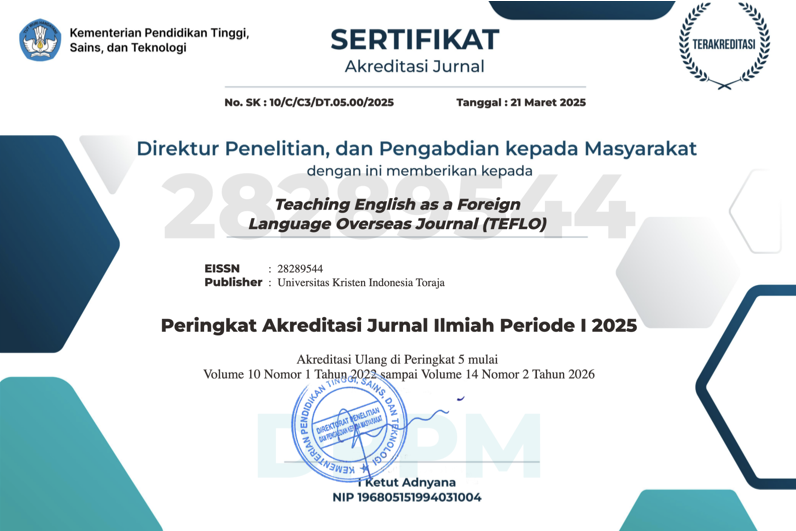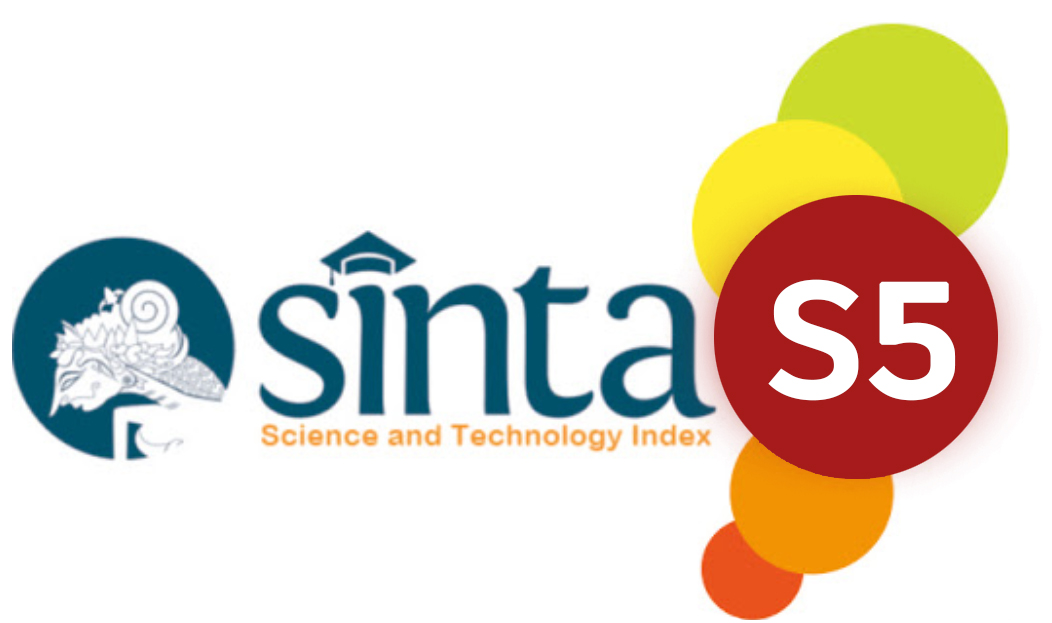IMPROVING LEARNING OUTCOMES THROUGH TEAM ASSISTED INDIVIDUALIZATION (TAI) COOPERATIVE LEARNING MODELS
DOI:
https://doi.org/10.47178/teflo.v10i3.2377Keywords:
Student learning outcomes, Team Assisted Individualization,Abstract
The use of the Team Assisted Individualization (TAI) cooperative learning model can improve learning outcomes in students at SMA Muhammadiyah 5 Makassar. Classroom action research consisting of two cycles, where each cycle consists of two meetings, with activity stages including planning, implementing, observing, and reflecting. The subjects of this study were all fourth grade students at SMA Muhammadiyah 5 Makassar, Makassar, a total of 41 students consisting of 21 male students and 20 female students. The increase in learning outcomes through the Team Assisted Individualization (TAI) type cooperative learning model in students of SMA Muhammadiyah 5 Makassar is seen by the increasing average value of student learning outcomes in cycle I which is in the low category and is in the high category in cycle II. The results showed that the application of the Team Assisted Individualization (TAI) cooperative learning model could improve the learning outcomes of students at SMA Muhammadiyah 5 Makassar .
References
Arikunto, S. 1993. Humane Teaching Management . Jakarta: Rineka Cipta.
Amen Muhammad. 1987. Teaching . Jakarta: Kannisius
Dedi Yunaedi, et al. 1994. Study Guide for Elementary Schools Volume 2 . Jakarta: Depdikbud.
Ministry of Education and Culture. 1993-1994. Basic Education Curriculum . Jakarta: Depdikbud.
-------------- . 1997-1998. Guidelines for Technical Guidance for SD/MI Teachers in Studies. Ministry of Education and Culture
--------------. 2006. Cooperative Learning Models. Jakarta: Rineka Cipta.
Dimyati & Mudjiono. 1999. Learning and Learning. Rineka Cipta.
Fisher, et all. 1995. Humanistic Education. Yogyakarta: New Light.
Haling, A. 2007. Learning and Learning . Makassar: UNM Publishing Agency.
Harmen, Sri. 2004. Window for Class IV. Solo: Three Triads.
Muhammad, Nur. 2005. Cooperative Learning . Ministry of National Education Directorate of Primary and Secondary Education East Java Quality Assurance Institute.
Muslimin & Umar Alimin. 2008. Thesis Writing Guidelines . Macassar. Makassar State University FIP.
Sahabuddin, H. 2007. Teaching and Learning . Makassar: UNM Publishing Agency.
Sardiman. 2004. Learning and Learning. Jakarta: Rineka Cipta.
Slameto. 2003. Learning and Factors Influencing It : Rineka Cipta
Sugiyono. 2010. Qualitative Quantitative Research Methods and R&D. London: Alphabet.
Sukmadina, NS 2007. Educational Research Methods. Jakarta: Youth Rosda Karya.
Sulistyanto, H and Wiyono Edy. 2008. Class IV Education. Jakarta: MoNE Bookkeeping Center.
Sumaji. et al. 1998. Education. Jakarta: Aglesindo.
Sun. 1992. Educational Psychology. Jakarta: Rineka Cipta.
Shah. Muhibbin. 1995. Teaching and Learning Process and its Types. Bandung: The Literary Earth.
Tirtahardja, U & La Sulo. 2005. Introduction to Education . Jakarta: Rineka Cipta.
Umar, A & Kaco, N. 2005. Classroom Action Research , Introduction to Understanding Concepts and Applications. Makassar: Makassar State University Publishing Agency.
Umedi. 2001. Learning Theory and Learning. Module: Civics B.18













